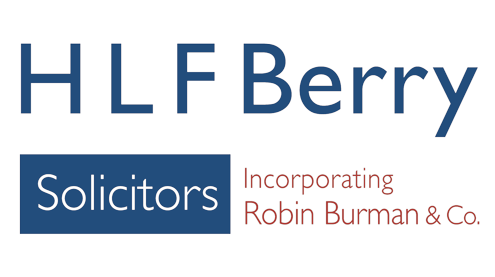Enfranchisement Of Freeholds And Extension Of Leases
Is your property a relic of the feudal system?
If you own a leasehold residential property (house or flat), or are thinking of buying one, you may be interested in this article.
Over the past few years we have been receiving an increasing number of queries from clients with leasehold properties regarding the possibility of purchasing their freeholds or of extending the length of their leases. You may have read some horror stories in the press about unscrupulous landlords seeking to maximize their financial benefit from tenants locked into long leases. Problems can arise because of increasing ground rents or when the landlord is seeking to charge extortionate fees to give consent to what appear to be minor alterations to properties.
There are circumstances where the owner of a long lease can take the initiative and either force the sale of the freehold to them or gain an extension to their lease to increase its length. The following is a brief summary but there are many conditions to be satisfied and not every case will be suitable for the exercise of these rights.
1. Freehold Enfranchisement
The Leasehold Reform Act 1967 (as amended) gives tenants with a long lease (over 21 years) who have owned their lease for at least 2 years and who pay a low rent rights to acquire their freehold. There is generally no requirement that the applicant need be in occupation of the premises (although exceptions to this do apply) i.e. the right can also normally apply to Buy to Let property owners in some circumstances.
These rights apply to houses and flats. If you are the sole leaseholder of the building you can take the necessary steps yourself (preferably with a Solicitor’s advice!). In the case of flats there is a collective right to enfranchise – a majority of tenants must be in favour. If so, a Right to Buy Company will need to be formed as the vehicle for the purchase, and careful thought will need to be given to the wording of the Company’s Constitution. A Participation Agreement might also be required setting out rights and expectations of participating tenants. Tricky issues can arise where tenants have rights to use large grounds.
What would the price be? A valuation will be required by a surveyor/valuer. It is much cheaper to enfranchise when your lease has at least 80 years left to run as the landlord is entitled to a significantly higher valuation after that. The Act provides that tenants must meet the landlord’s legal costs and valuation fees.
There is a prescribed procedure for embarking on the process involving formal notice to the landlord, the landlord having the right to serve counter notice. Strict time limits for each step apply once the procedure has commenced.
2. Right to Extend Length of Leases of Flats
Tenants with a long lease (more than 21 years) of flats have a right to extend their lease by adding 90 years to it. This can be particularly useful if the lease is difficult to market because of the shortness of the lease term. The landlord is entitled to a payment of a premium covering lost ground rent, reduction in open market value of the landlord’s freehold as a result of the extension and reduction in value of the landlord’s other property as a result. Once again, a surveyor/valuer’s assistance will be required when arriving at the valuation. If the right is exercised when the tenant’s existing lease is 80 years or less the tenant will have to pay substantially more covering one half the “marriage value” arising from the lease extension – effectively one half of the increase in capital value by reason of the extension. It therefore makes sense to make the application well before the 80 year limit.
Tenants must have owned their lease for 2 years, but residence is not a pre-condition. This is an individual right i.e. it does not require participation by other tenants. Once again, the landlord’s costs must be paid. The new lease will be granted at a peppercorn (effectively nil rent) and will normally be on the same terms as the existing lease. If you have a mortgage, provided you follow the statutory procedure, the mortgage will apply to the Freehold too; however, if the statutory procedure is not followed and the matter is dealt with informally by negotiation it will be necessary to approach your bank to ensure the necessary documentation is entered into – otherwise the Bank will be concerned.
Both these procedures are somewhat complicated but can be very useful as a way of improving difficult situations. Freehold enfranchisement can be a great way of removing interference by an outside landlord.
Finally, if you are thinking of buying a leasehold property it is so important that you understand properly and take detailed legal advice on your obligations to the landlord before signing up!
Getting competent legal advice is vital – if you would like further advice on any of these points please contact (Paul Hannam in our Chorlton Office – 0161 860 7123 – ph@hlfberry.com) or (Paul Citron in our Failsworth Office – 0161 681 4005 – pc@hlfberry.com).






